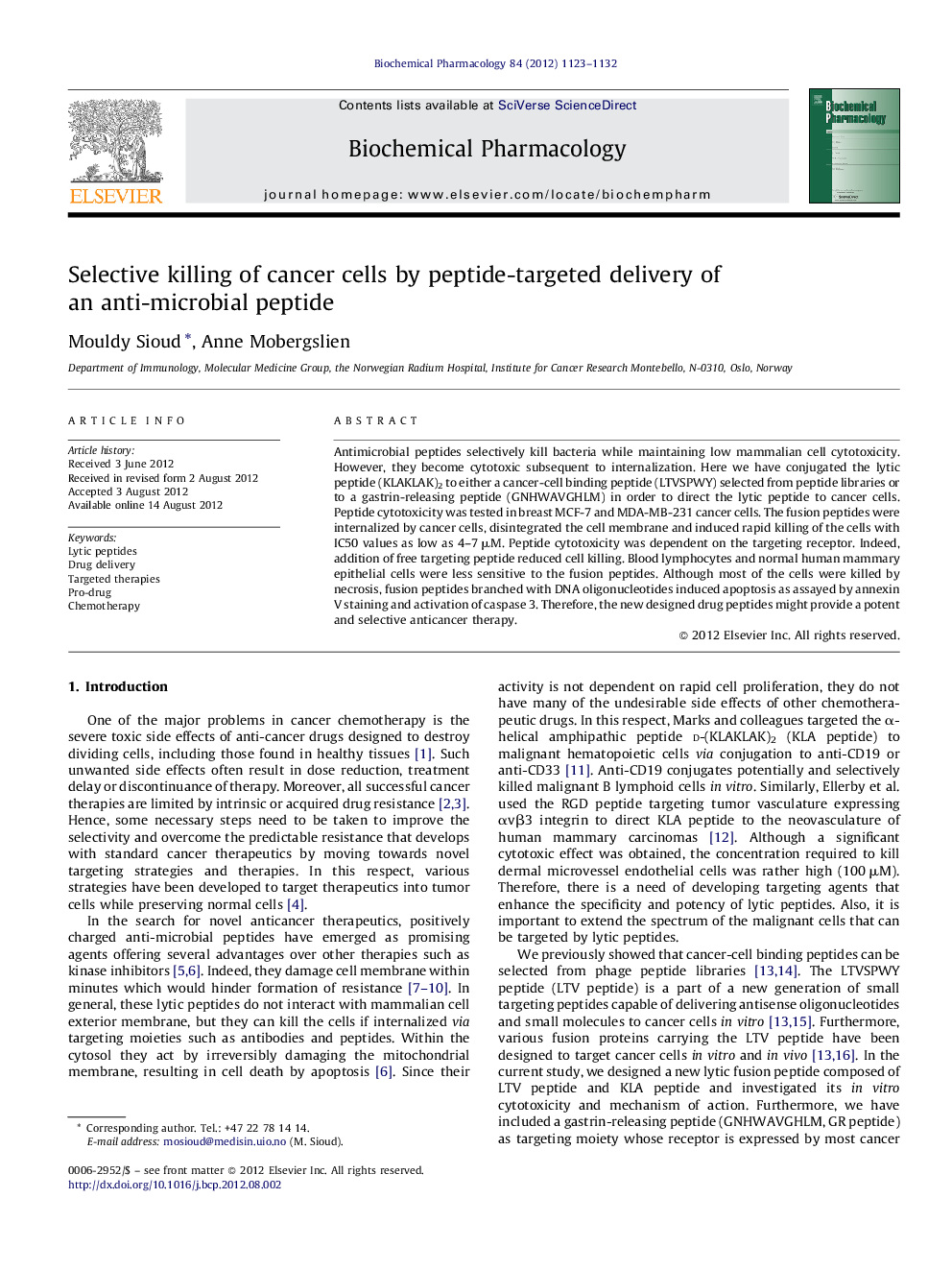| Article ID | Journal | Published Year | Pages | File Type |
|---|---|---|---|---|
| 2512380 | Biochemical Pharmacology | 2012 | 10 Pages |
Antimicrobial peptides selectively kill bacteria while maintaining low mammalian cell cytotoxicity. However, they become cytotoxic subsequent to internalization. Here we have conjugated the lytic peptide (KLAKLAK)2 to either a cancer-cell binding peptide (LTVSPWY) selected from peptide libraries or to a gastrin-releasing peptide (GNHWAVGHLM) in order to direct the lytic peptide to cancer cells. Peptide cytotoxicity was tested in breast MCF-7 and MDA-MB-231 cancer cells. The fusion peptides were internalized by cancer cells, disintegrated the cell membrane and induced rapid killing of the cells with IC50 values as low as 4–7 μM. Peptide cytotoxicity was dependent on the targeting receptor. Indeed, addition of free targeting peptide reduced cell killing. Blood lymphocytes and normal human mammary epithelial cells were less sensitive to the fusion peptides. Although most of the cells were killed by necrosis, fusion peptides branched with DNA oligonucleotides induced apoptosis as assayed by annexin V staining and activation of caspase 3. Therefore, the new designed drug peptides might provide a potent and selective anticancer therapy.
Graphical abstractTargeting of a lytic peptide to cancer cell via attachment to cancer cell-binding peptides that recognize selectively cell surface receptors.Figure optionsDownload full-size imageDownload as PowerPoint slide
